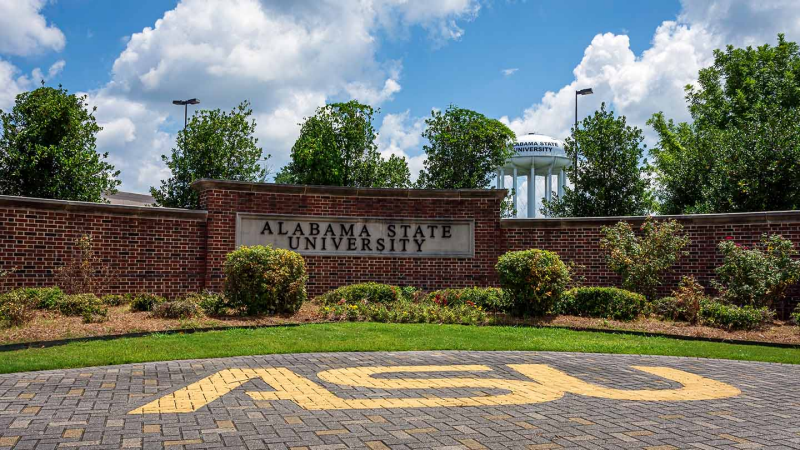What’s an HBCU college?

Senior Associate, JPMorgan Chase

As a high school or transfer student, you may have stumbled upon one of the 99 historically black colleges and universities (HBCUs) in your research.
But what are HBCUs exactly? HBCUs, according to the U.S. Department of Education, are public and private colleges and universities dedicated to the education of Black Americans established before the Civil Rights Act of 1964. These colleges were started during segregation in the U.S. to give Black students access to higher education. They’ve played an important role in serving Black students who may have been denied access to education during slavery and segregation and beyond.
Let’s break down the ins and outs of HBCUs, including their history and other frequent questions students have about them.
What does HBCU stand for?
HBCU, the acronym, stands for historically black colleges and universities. While HBCUs have been around for more than 150 years, the official term was coined by the Higher Education Act of 1965, which expanded the federal government's role in secondary education and began to provide funding to HBCUs.
What’s the history of HBCUs in the U.S.?
The origin of HBCUs begins with Quaker philanthropist Richard Humphreys, who started the Institute for Colored Youth in Philadelphia, Pennsylvania, in 1837 to serve and educate African Americans. This institution became known as Cheyney University of Pennsylvania and was relocated over 30 miles from Philadelphia, to a town now called Cheyney, Pennsylvania. Today, the university is considered to be the first HBCU.
The Second Morrill Act of 1890 helped to aid the growth of HBCUs in the U.S. The ruling required states with separate colleges for Black and White citizens to establish colleges to train Black students in agriculture, mechanical arts, and architecture.
HBCUs continued to expand enrollment even after segregation in the U.S. ended in 1964. Although HBCUs were originally founded to educate Black students, these schools now enroll students of all ethnicities.
How many HBCUs are there?
As of 2022, there were 99 accredited HBCUs, according to the National Center for Education Statistics. These schools are in 19 U.S. states, with 50 being public institutions and 49 being private.
As a refresher, a public college or university is in part funded by state governments and public sources, while private ones are primarily financed by endowments and tuition.
Some HBCUs across the country include:
- Alabama State University (Montgomery, AL)
- Arkansas Baptist College (Little Rock, AR)
- Howard University (Washington, DC)
- Edward Waters University (Jacksonville, FL)
- Albany State University (Albany, GA)
- Simmons College of Kentucky (Louisville, KY)
- Dillard University (New Orleans, LA)
- Bowie State University (Bowie, MD)
- Jackson State University (Jackson, MS)
- Voorhees College (Denmark, SC)
- Wiley University (Marshall, TX)
- Hampton University (Hampton, VA)
- Virginia Union University (Richmond, VA)
- Bluefield State University (Bluefield, WV)
- Fisk University (Nashville, TN)
How do I apply to HBCUs?
The college application process for HBCUs is no different from applying to any other U.S. college or university. First, as you decide which colleges or universities you may want to apply to, you may want to ask yourself some of the following questions:
- Are you looking for a two-year or four-year school?
- Do you want to attend a co-ed or single-sex school?
- Do a school’s major offerings align with what you want to study?
- Is the school within your budget?
- Do you prefer an urban, suburban, or rural campus?
- Do the school’s extracurricular activities align with your interests?
- Do you want to be close or far from home?
Once you decide what colleges you want to apply to, research the application deadlines and requirements. You may also want to consider filing the Free Application for Federal Student Aid (FAFSA®) so you can access federal student aid, including federal student loans and grants if you’re eligible.
Common FAQs About HBCUs
What’s the oldest HBCU?
The oldest HBCU in the United States is the Cheyney University of Pennsylvania, which was founded in 1837.
What’s the largest HBCU?
The largest HBCU, according to enrollment numbers, is North Carolina Agricultural and Technical State University, with 13,883 students enrolled in the 2023-24 academic year. The school reports that for the tenth year straight, amongst its HBCU peers, it’s held this ranking.
How many people receive degrees from HBCUs each year?
According to the National Center for Education Statistics, in the 2021-22 academic year HBCUs conferred roughly 48,800 degrees, including associate degrees, bachelor’s degrees, master’s degrees, and doctoral degrees
Who are famous graduates of HBCUs?
Quite a few prominent people have graduated from HBCUs. Some of these people include:
- Thurgood Marshall, Supreme Court Justice
- Kamala Harris, Vice President of the United States
- Oprah Winfrey, Media Personality
- Samuel L. Jackson, Actor
- Taraji P. Henson, Actress
- Spike Lee, Director
- Toni Morrison, Author
- 2 Chainz, Rapper
Final thoughts
HBCUs have historically played a significant role in higher education in the U.S. If you’re in the process of applying for college, consider the heritage of HBCUs as you weigh your options. Also, consider other important factors to you like location, class sizes, extracurricular options, and more when deciding on where to apply.



